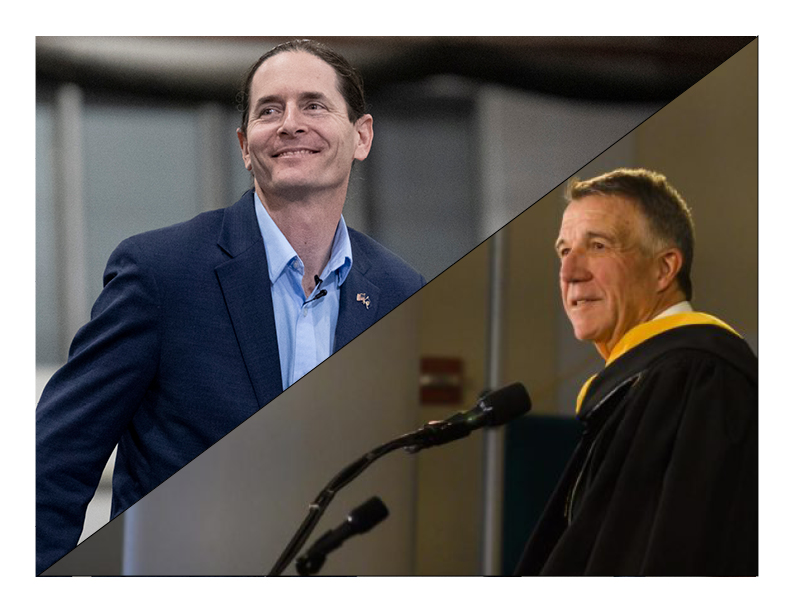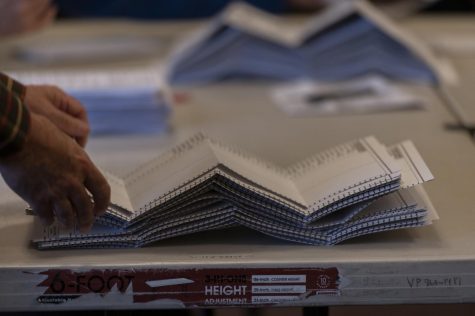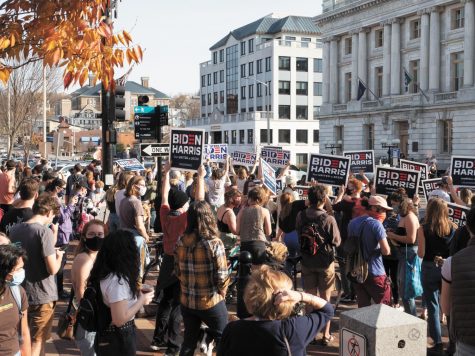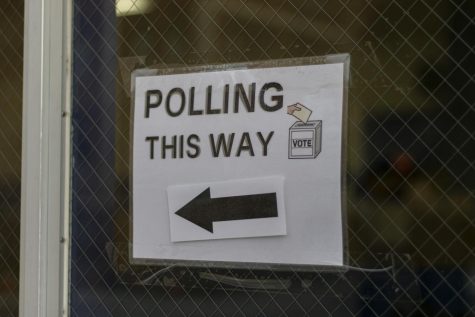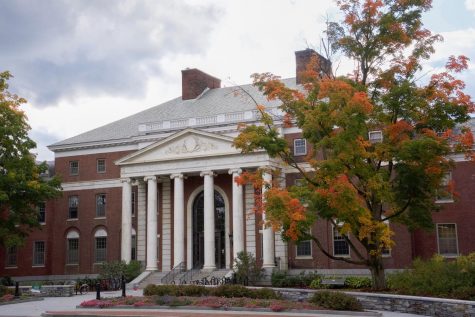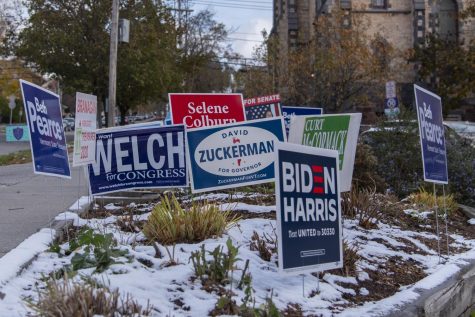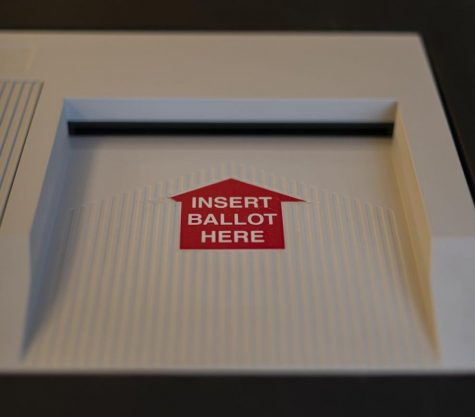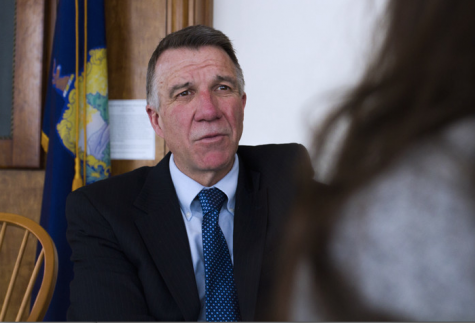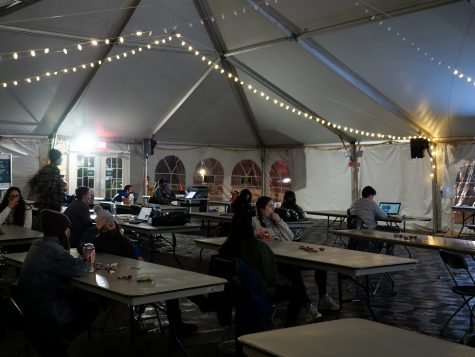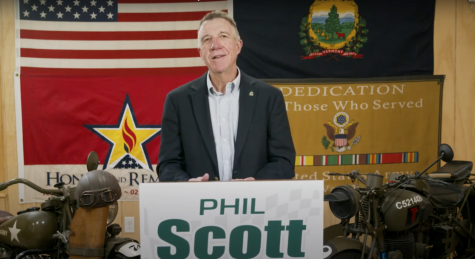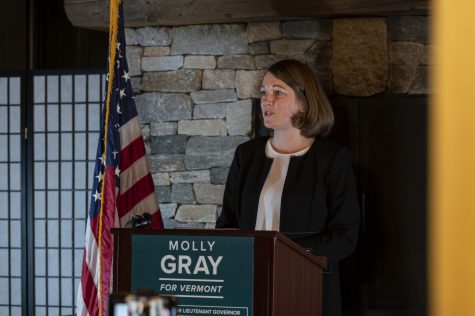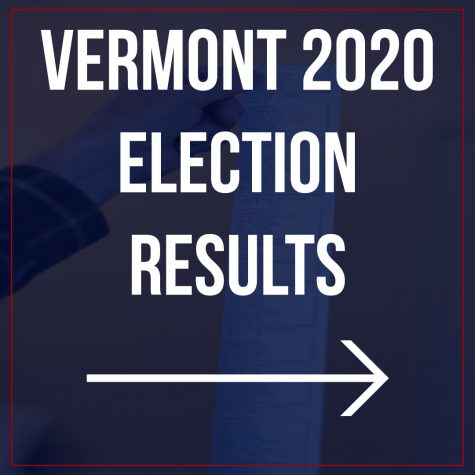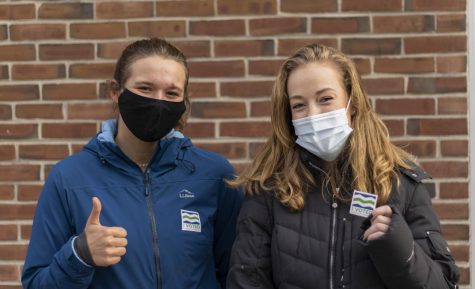UVM alumni face off in 2020 Vermont governor’s race
Two UVM alumni are facing off head to head in the race to be Vermont’s governor Nov. 3.
Incumbent Republican Governor Phil Scott is trying to keep his spot as current Lieutenant Governor David Zuckerman, a Democrat/Progressive, wants to move up the ladder.
Scott, who was first elected as governor in 2016, has been a state and national leader in his response to the coronavirus in Vermont, but Zuckerman said he thinks it’s time for change.
David Zuckerman (Democrat/Progressive)
Inspired by Senator Bernie Sanders to get involved in politics during his days at UVM, David Zuckerman decided to challenge Scott for the Governor position this election cycle.
Zuckerman, who has been the Lieutenant Governor for the state for the last four years alongside Scott, said in an interview with the Cynic his platform emphasizes the climate crisis.
“If we invest in climate jobs, that will create opportunities for students,” he said. “If we expand broadband across the state into more rural areas, that will affect job opportunities for students all tackling the climate crisis.”
Zuckerman spoke at an Oct. 23 climate strike, organized by UVM students and Burlington community members, where he called on Vermonters to vote for advocates of climate mitigation in the upcoming election.
Zuckerman said three things he is campaigning on are the climate crisis, social injustices and economic injustices.
He said the climate crisis leads to economic hardships that are felt more intensely by people and communities of color and people of lower economic status.
“We need to make sure that we tackle a lot of other racial and social injustices throughout our whole system of government from how grants are created and disseminated,” he said. “And the different policies and criminal justice and law reforms we can make there.”
Zuckerman, who said he has spent 25 years working to reform cannabis laws in Vermont, said cannabis reform revenues could be used to help students in-state colleges in Vermont.
“Now that we finally have a tax revenue system that’s going to be implemented over the next couple of years, we can use some of [the cannabis reform] revenues to help future students have more affordable state colleges in Vermont,” he said. “That affects young people quite a bit.”
Phil Scott (Incumbent, Republican)
Elected in 2016, Scott is running for a third term on a platform that prioritizes COVID-19 recovery and relief.
Jason Maulcci, Scott’s campaign manager and a UVM grad, said Governor Scott wants to make Vermont more affordable and attractive to younger people to keep them in the state.
“The governor has talked about how important it is to make the state more attractive for young professionals to start their careers, start a family, and stay,” he said.
This includes investments in childcare, higher education and affordable housing — an issue central to his 2016 campaign.
“We need to focus like a laser on making Vermont more affordable so we can reverse our downward demographic trajectory and bring more people and keep more people in the state,” he said. “That’s definitely an area the governor will focus on, other than the COVID response.”
Malucci said right now the pandemic is Scott’s top priority.
“We are heading into the winter, heading into the fall and tough times ahead,” he said. “The Governor keeps reminding folks we have to stay vigilant, not let our guard down, not let pandemic fatigue set in.”
Malucci said 2020 has been a year where everything is unexpected.
“You just have to be ready, we just have to be ready for the unexpected,” he said. “You never know in this day and age what the days are going to bring.”
Because of the COVID-19 pandemic, Governor Scott decided to not campaign in person, starting his campaign later than others.
Malucci said he doesn’t think there is another governor candidate running a campaign like Scott’s.
“When he announced his re-election in May, he made it clear that his priority was going to be governing, doing the job that Vermonters elected him to do, not campaign,” he said. “I wasn’t brought on until labor day.”


